'The voting bloc is here.' Rochester charter schools see power in soaring enrollment
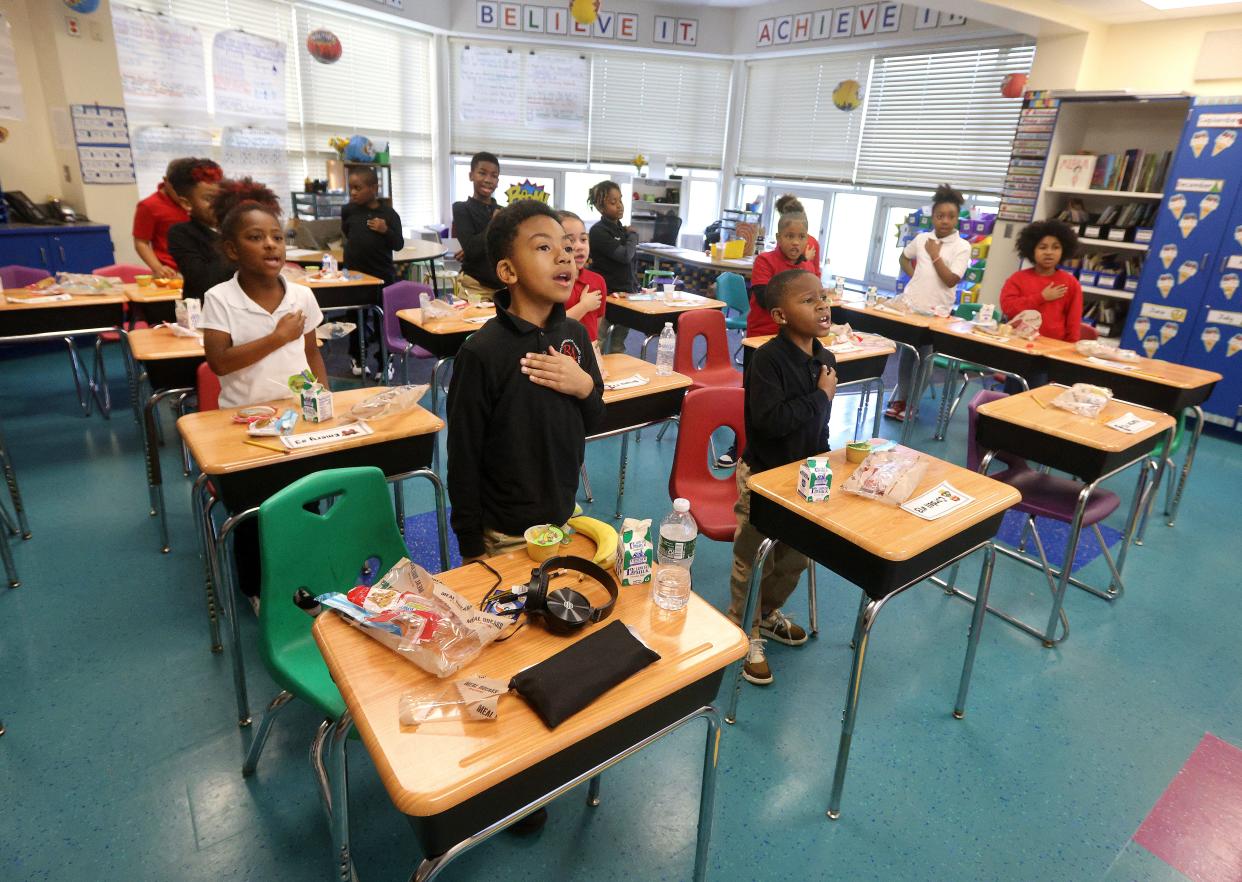
Twenty-four years ago, charter schools were a untested option among school choices in the city of Rochester. Today they are dominant: 7,700 students enrolled across more than a dozen schools, many of them maintaining lengthy waiting lists.
The sector's presence in the local educational ecosystem is secure. Now, charter leaders say, is the time for real change.
One of the engines of the local charter sector growth is a non-profit called Edceptional, recently rebranded from E3 Rochester. It has new office space in the Powers Building in downtown Rochester and a relatively new CEO in Sebrone Johnson, a former Urban League of Rochester executive with past experience in data analysis and business operations.
Johnson said that Edceptional is reconsidering its own role in recruiting schools and maintaining high standards.
The organization is looking to serve a new role for local charter schools and the educators within them. That will include hiring literacy specialists to spread best teaching practices, he said, as well as leadership development for administrators and board members.
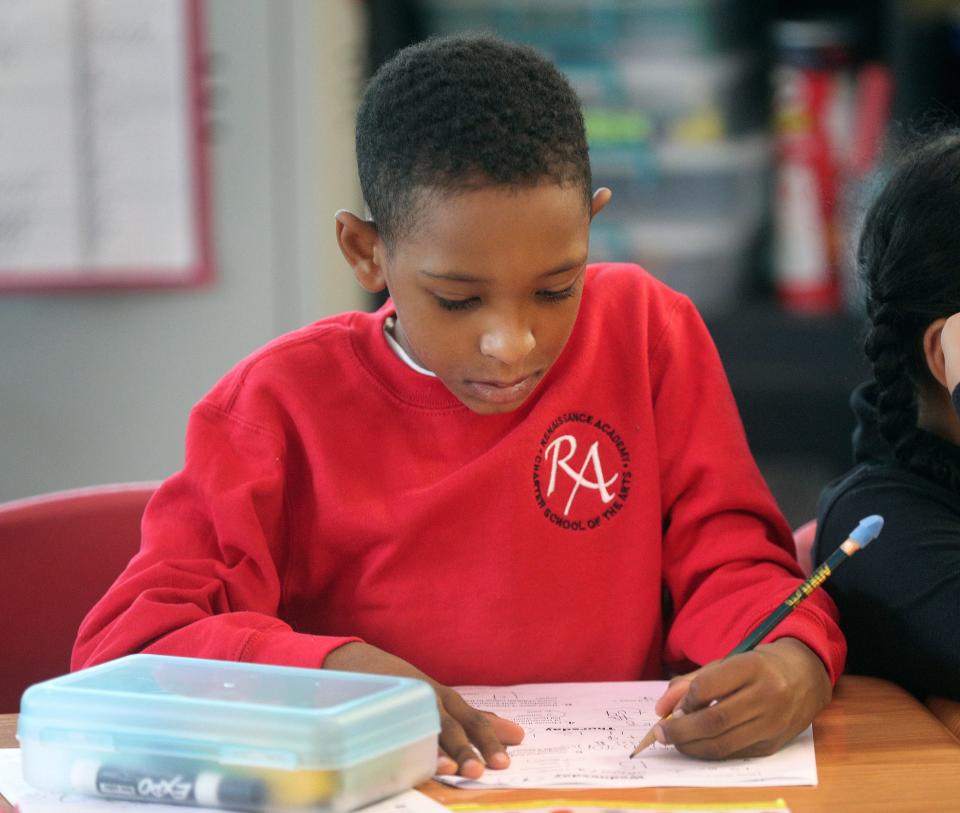
"We have to be a charter sector support organization for a lot of the stand-alone schools because we don't have many charter management organizations in Rochester," he said. "So we're trying to find out exactly what they need and provide those supports."
More notably, Johnson and Edceptional board president Bryan Hickman said, the organization is looking to convert its school families into a political base for more systemic change.
"In the past we've done so much work in the background but not a whole lot of work in the foreground," Johnson said. "The charter sector has grown up enough, and the charter school voters are maturing, too."
"It would be (prudent) for legislators to look at this and recognize that the voting bloc is here. We have 8,000 students going on 9,000. Not so many months from now that represents at minimum 9,000 parents, maybe 18,000 parents, that care enough to choose a particular school. I would wager they care enough to look into what they vote for."
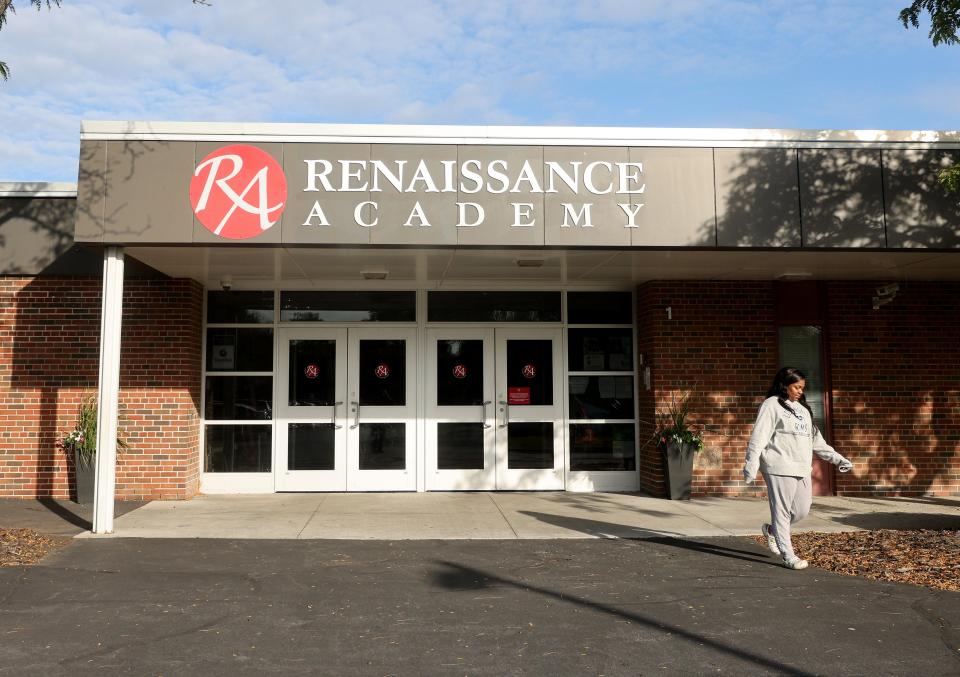
Below is an edited and condensed transcript of a conversation with Johnson at his office on Sept. 29.
The Urban Choice closure process was a drawn-out and difficult process. How do you view that, and did you have any involvement in it?
We view it as sad, but proof that the system works. We didn't want to see Urban Choice close; we don't take any glee in seeing any school close. But Urban Choice had an agreement in its charter to provide certain things, and if they didn't meet the agreement in the charter, the ramification is that the school closes. That's the same for all our charter schools. And so we felt that if the authorizers feel that the school isn't living up to their contract, then they should be closed.
Is it fair to say that facilities is a limiting factor, or at least a pressing issue in terms of growth?
Facilities is a problem. Let me say first that our focus primarily is on academic achievement. But when we talk to students, to teachers, to CEOs and principals of schools, almost without fail facilities is within the top three concerns. You have a number of schools that don't have adequate space to provide for their students. You look at what's happening with U Prep — it's sad. It's an unfair process when it comes to finding space for charter schools.
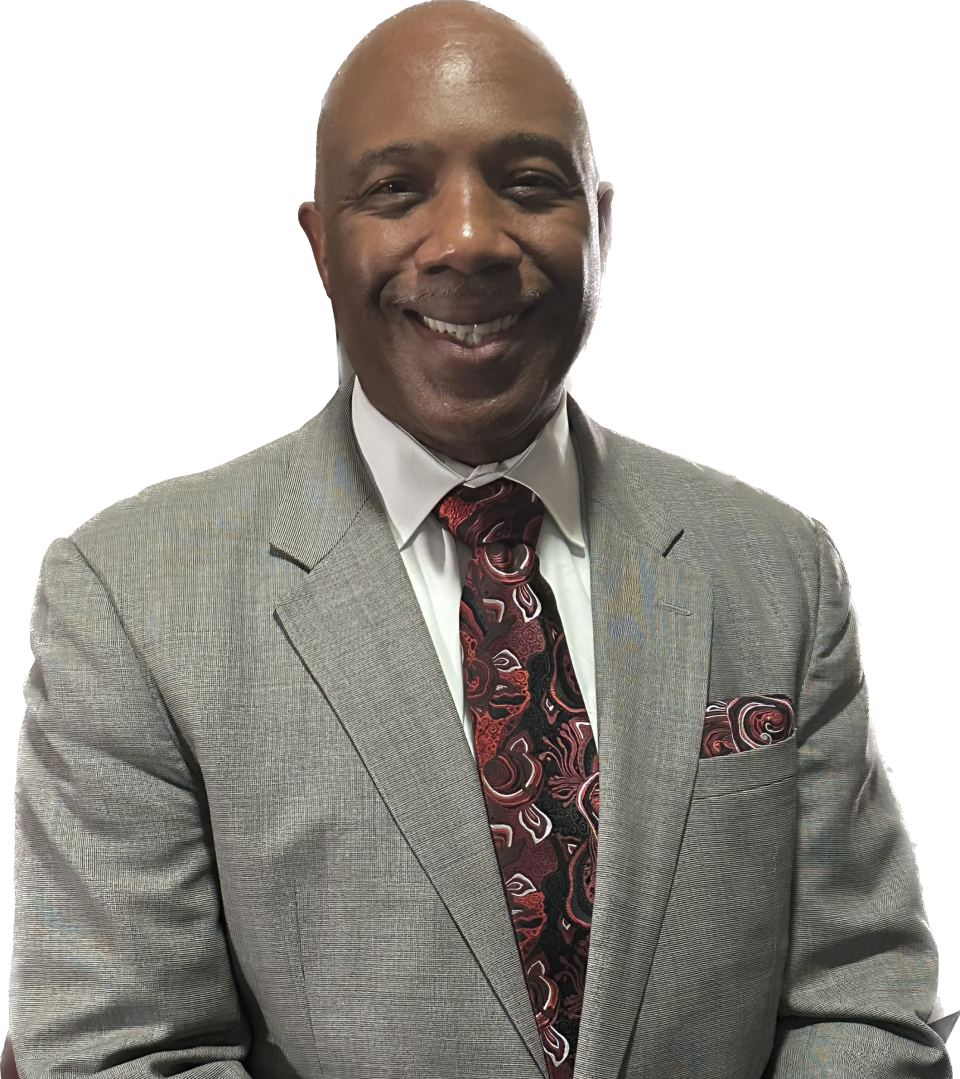
You may have heard RCSD Board President Cynthia Elliott on WDKX-FM a few weeks ago seemingly go out of her way to say she doesn't want to cooperate or work together with charter schools. How is the relationship with the district lately?
I think the relationship is strained. We have no appetite to denigrate or destroy the district. I hope that we can partner on a number of areas. I really do. When I heard the comments from Cynthia Elliott, I personally emailed her to ask to sit down and talk about it. Because the kids have got to be the north star. This language about, "We're coming after your kids," as though they're some commodity — that to me is not helpful.
I'm hoping that, at some distant time in the future, we can partner to (improve academic outcome for all children). Because, the truth of the matter is that, even if every student wanted to be in a charter school right now, we don't have a capacity for it. So the district has a place there no matter what.
Did Cynthia Elliott respond to your email?
Not to this point, no.
As you know, one of the common criticisms is that charters in general don't enroll the same proportion of English language learners, students with disabilities and homeless kids. Is there any effort on the sector level to get those numbers up?
We certainly don't take that for granted, and we certainly place emphasis on English language learners. It's a problem. It's a challenge. But it's not something that the state Education Department is giving us a pass on. So we try to make sure that school applications reflect those preferences, that we really want English language learners in the schools.
What's not true is a myth that we try to push them away. No — for our own scenarios with the state, we want them. We're trying to get them.
➧ From 2019: Are charter and suburban schools pushing students with disabilities to RCSD's door?
You're aware of the enrollment trend lines with the district and the charters. Right now the district has about 20,000 kids and charters have about 8,000. Do you have a concern that, if those numbers ever were flipped or went in that direction, then the district would get destabilized, first of all for the kids in those schools but also to the extent that you rely on it for things like transportation, food and special education, among others?
That's why we have a genuine concern for the district. Let's not fold our arms and not talk across the table. It's in both of our interests to talk now and start planning for the future. How do we help one another in order to help the children? As soon as we start arguing about the system and not thinking about the kids, then we lose. We want to make sure that all schools are great. But we're hoping we'll be the model.
In some areas, as it comes to funding or overall policy questions, you're at the mercy of the state Legislature and the Board of Regents. You've got Adrian Hale on the Regents now, and he's sympathetic to charter schools. What do you think are your prospects for reform at the state level, including around facilities or overall funding?
New York state is known to be less than progressive (on charter schools) compared to what other legislatures do across the country. But we're going to continue to make our point again and again, and we're hoping that at some point will turn into legislation in our favor.
If you look nationally, when you reach the saturation point of about a third of the students in a given city being in charters, then things turn around. The district starts listening more; there may be more cooperation throughout that particular region. So we're trying to build to that point so that we can say, yes, we are a viable option and let's all get to the table and talk. And I think that's what makes the state listen to us as well.
On a more local level, there have been a few instances lately of charter-friendly candidates losing Rochester school board elections. With more than a quarter of Rochester kids in charter schools, are you surprised you haven't been able to place a charter advocate on the RCSD board?
I'm not surprised — but I think that's what's going to be changing. These parents are voters, so we need to give them information so they know what they're voting for. We have a radio show at 10 a.m. every Wednesday on WDKX where we're talking to parents and really trying to increase their understanding. If we're going to be honest, we haven't done a great job of that in the past, but that's what we're targeting now.
(Bryan Hickman, chairman of the Edceptional board of trustees, added: "We're a 501(c)3, so we can't do political stuff. But we can promote the concept. And at some point maybe that'll have to be a sister organization or something. With a little organization the charters could get 5,000 people to show up on primary day.")
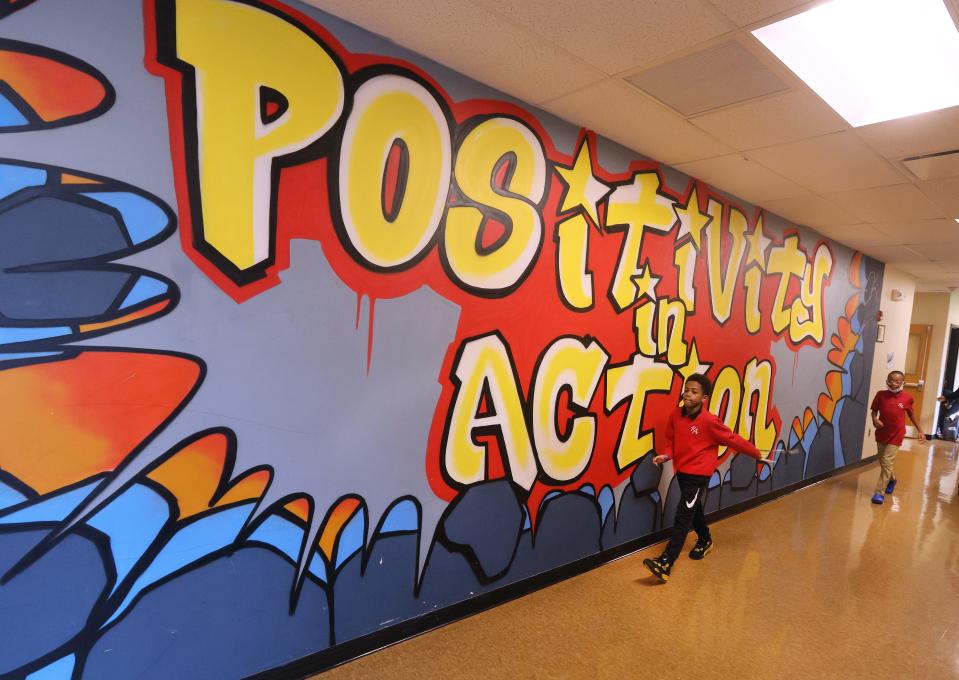
How is your relationship with the mayor?
I think we have a great relationship with the mayor.
We understand that he's pragmatic in his decision-making, and so we take baby steps in our conversations about fairness. A few months ago we asked the heads of the boards of the charter schools to come and meet with the mayor. We talked about transportation and about acquiring buildings fairly, and he received it. We also talked about the need for charter schools to receive the same information that district schools receive, and the next morning they started sending us all the same information. So I will say that although pragmatic about the decisions, he's been fair, and we hope that will continue.
Anything else you'd like to add?
I'd like to say that we are doing a disservice to the community and to kids if we don't see this as an equity issue. Parents ought to have great choices for where their kids go to school. And if you think the district schools are the best place for your kid to thrive, then God bless you, that's your choice. If you think that a charter school can provide a better pathway to your child's future, then you owe it to that child to go that route.
But to not have a choice in where your kid goes to school regardless of how that school performs — that is inequitable. And so for me personally, it's an equity issue. This is an equity fight.
➧ Rochester's Bettina Love: Where did all my classmates go?
➧ Report: 'Devastating instability' affects RCSD students, schools
Justin Murphy is a veteran reporter at the Democrat and Chronicle and author of "Your Children Are Very Greatly in Danger: School Segregation in Rochester, New York." Follow him on Twitter at twitter.com/CitizenMurphy or contact him at jmurphy7@gannett.com.
This article originally appeared on Rochester Democrat and Chronicle: Rochester NY charter schools see power in soaring enrollment

